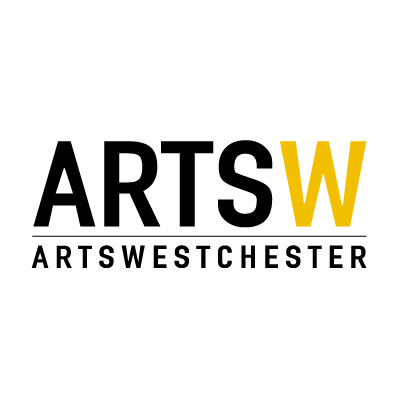Mamaroneck Juneteenth Interview with Leilani Yizar-Reid and Larry Albert
Excerpt from an interview with Leilani Yizar-Reid and Larry Albert conducted on by Niara Jordan.
Niara Jordan (NJ): How did you bring your celebration to life? What’s the origin story?
Leilani Yizar-Reid (LYR): Well, Mamaroneck has a history of discrimination in our school district. The organization OneMamaroneck reached out to Black and African American residents in the community to say “Hey, we really want to plan this Juneteenth celebration”. They didn’t want a white woman or a Hispanic woman to be the forefront of creating this blessed celebration. They reached out to community leaders like myself, Jared Winchester and Larry Albert. Together we formed this wonderful celebration.
NJ: Yes, it really is important and needed, so thank you for your work so far.
LYR: Thank you ArtsWestchester for providing a grant so that we can do this! We’re very grateful.
NJ: What would you say is unique about your program ? Why and how is this an important celebration?
Larry Albert (LA): First of all, it’s acknowledging and recognizing that slavery existed in Westchester and Mamaroneck, recognizing those who were enslaved and the tradition, culture, and history of Black people and the legacy that we have here.
LYR: Indeed, indeed. We have high hopes for the future. We want to be like White Plains! We want a parade! <laughs> We want it to be a big deal because there was slavery and we do have records of enslaved Africans that were in the villages of Larchmont and Mamaroneck. We want to honor them, their journeys and to honor ourselves and our community. This year, our theme is “ancestral spiritual awakening”. I like to talk about the universe, “What is going on, universally? What is happening within us and within our community?”. We’re starting to awaken, to connect not just with ourselves, but with our ancestors. To me, that is an awakening – a spiritual connection that we are starting to have and really honor and. As part of the celebration we will talk about the five pillars; food, faith, entertainment, family, and education.
Larry Albert: Our celebration speaks to the Black community, the contributions, the legacy that we’ve had here for many years – how we came here, how we landed here, the food.
NJ: That’s right. The culture. What are the activities that you are planning?
LA: There are going to be drummers and a DJ. We’re going to do some narratives on some of the issues that affect our culture, and how our culture has contributed to this community.
LYR: Right. We decided that we wanted to, as Mr. Larry was saying, divide up. That’s why we had those five pillars. We want to educate the community on different things. It will be fun, but there are also going to be educational moments where we are teaching.
We will talk about music and how music has shaped us as a people. How music has helped us and healed us in so many different ways from then to the present day. Music guided us, you know, as a North Star. When it comes to food, we’re going to have a cooking demonstration for kids and adults. They’ll learn about rice and beans and how these foods were transformed or translated from Africa, to the Caribbean, to this country. How their preparation has changed over time, as we’ve shifted and intertwined with other cultures. It will be an old family cookout! Just like a cookout!
LA: That’s what it’s going feel like. A family reunion, church, a cookout-type-of-feel.
NJ: I love it. I want to come now!
LYR:We want people from all different culture to come out, to enjoy, and to understand us as a people, our plight, our journey. A lot of us don’t even know our own culture so this is celebrating us as Black people—
LA: —as a community.
NJ: Spreading love across the county and the diaspora. I love it. That brings me to the last question. Did you learn about Juneteenth when you were coming up?
LA: No, Not at all. Not even close. I learned about Juneteenth from a childhood friend of mine, a young lady from Texas. This was in 1985. She told me about it. I had never heard of it. And for many years it was only celebrated in Texas, but it has spread across the country now.
LYR:I sure didn’t learn about it coming up. If I did, I probably forgot, but I don’t recall.
We’re also doing a fundraiser for a particular organization called REAL, which stands for “Recognizing Enslaved Africans of Larchmont and Mamaroneck. I’m a part of the committee and it’s comprised of members from the community who want to educate the people about the slavery that happened in Larchmont and Mamaroneck, And we do have records.
REALM is going to erect a beautiful sculpture at our Town Center that will be displayed for everybody to see and use. It’s not just art. It’s also an educational piece. We have located the artists who are going to design it. It’s going be a beautiful piece. They need help getting the funds so we are organizing a fundraiser for them.
NJ: That’s amazing, doing the work all around…
LYR: All around. It’s about a holistic approach. This is not “one shot.” Society should always be taking a holistic approach. We’re all one. We are all being fed. That is the purpose.
NJ: What does Juneteenth mean to you?
LYR: Juneteenth means if one is not free, then we all are not free.
LA: For me, it’s a time to look at the history of this country and look at how slavery has affected this country until today, with the systemic racism that still exists. We have to acknowledge this, learn from this, and then we can move on. We made some improvements. But there is a lot more work to be done— knowing our history and knowing where we have to go.

About ArtsWestchester
For more than 50 years, ArtsWestchester has been the community’s connection to the arts. Founded in 1965, it is the largest, private, not-for-profit arts council in New York State. Its mission is to provide leadership, vision, and support, to ensure the availability, accessibility, and diversity of the arts. ArtsWestchester provides programs and services that enrich the lives of everyone in Westchester County. ArtsWestchester helps fund concerts, exhibitions and plays through grants; brings artists into schools and community centers; advocates for the arts; and builds audiences through diverse marketing initiatives. In 1998, ArtsWestchester purchased the nine-story neo-classical bank building at 31 Mamaroneck Avenue which has since been transformed into a multi-use resource for artists, cultural organizations, and the community. A two-story gallery is located on the first floor of ArtsWestchester’s historic building on Mamaroneck Avenue.
For more than 50 years, ArtsWestchester has been the community’s connection to the arts. Founded in 1965, it is the largest, private, not-for-profit arts council in New York State. Its mission is to provide leadership, vision, and support, to ensure the availability, accessibility, and diversity of the arts. ArtsWestchester provides programs and services that enrich the lives of everyone in Westchester County. ArtsWestchester helps fund concerts, exhibitions and plays through grants; brings artists into schools and community centers; advocates for the arts; and builds audiences through diverse marketing initiatives. In 1998, ArtsWestchester purchased the nine-story neo-classical bank building at 31 Mamaroneck Avenue which has since been transformed into a multi-use resource for artists, cultural organizations, and the community. A two-story gallery is located on the first floor of ArtsWestchester’s historic building on Mamaroneck Avenue.
